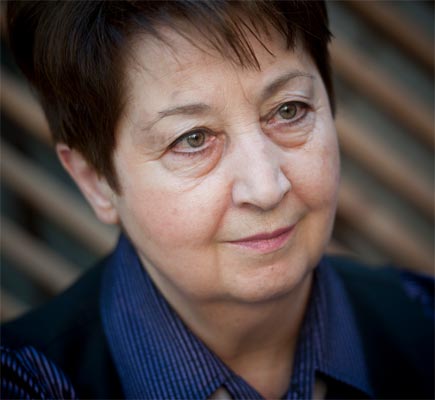Philip Koutev is an emblematic figure of Bulgarian culture, his body of work as a composer, considered to be classic, has enjoyed continued recognition and admiration around the globe.
Born in Aytos, he graduated the music school and then the National Conservatory in Sofia, and was immediately (in 1930) appointed bandmaster of the military brass band of the 24th infantry regiment in Bourgas. From 1935 until 1939 he worked at the reserve officers’ school and the military school in Sofia, a time in which he composed much of his work. But it was at the end of the 1940s and the beginning of the 1950s that he chose to begin work on his crowning achievement – the national folklore ensemble that was to evolve intoan institution that has moulded generations of singers, instrumentalists, composers professionally. It is the first professional ensemble on such a scale, incorporating a choir, an orchestra and dance formation. Ensembles were subsequently set up across the country following that same model. To begin with, Philip Koutev picked out and trained the musicians himself, created a wide repertoire for each of the three formations, and together, they conquered audiences in Europe, Asia, America.
 Prof. Elena Kouteva, musicologist, director of the Philip Koutev ensemble and daughter of the renowned composer remembers:
Prof. Elena Kouteva, musicologist, director of the Philip Koutev ensemble and daughter of the renowned composer remembers:
“He was inspired by the prominent figures of the Bulgarian National Revival as a musician and also in his work in the public domain. He was on the board of the Union of Bulgarian Composers, and for many years was its chairman. Our older colleagues remember that he never allowed any of the so-called avant-garde musicians to be persecuted for being an “enemy of the people”, as the communist authorities were wont to do. Thanks to him, festivals were created to popularize works by Bulgarian composers, as well as the famed folklore festival in Koprivshtitsa, and the Nightingale Nights festival in Aytos. The formation of the ensemble, all the work that went into establishing its name and reputation resulted in a decree on its foundation in 1951. It was hard work, indeed. The ensemble was to become the first institution to have penetrated the iron curtain (1956), a fact noted in all English, French, Belgian reviews. And it was all thanks to Philip Koutev.”
“Whatever one may do professionally, it has to have aesthetic and ethical value, and preserve everything authentic about folklore, reaching a high standard of craftsmanship and art. That is something we invariably adhere to. In the time I have been director we have never fallen below standard. And that is a powerful piece of advice – to keep the standard and never fall below it.”
“We are obviously fated that way,” Prof. Kouteva says. “My mother Maria Kouteva was my father’s rock. When a man sets about doing something big, he needs someone to support him, or he won’t succeed. As a philologist and folklorist at the ensemble, my mother played an important role with her culture, expertise, taste, modesty. She never took centre stage. My sister Nadezhda Kouteva is currently staging an exhibition which she dedicated to the anniversary of the birth of Philip Koutev and the centennial birth anniversary of Maria Kouteva. Together with the ensemble we had a concert dedicated to Philip Koutev in Bourgas – the city where he evolved as a professional composer. On 13 June, his birthday, we held a concert in the crypt of the Alexander Nevsky cathedral in Sofia, which we called “We sing to thee”. We were very careful in the selection of works, and the result was a concert of style, a blend of church and secular music. We shall also organize a big concert of symphony music – Koutev also composed symphony, chamber, and film music before dedicating himself fully to the ensemble.”
English version: Milena Daynova
When two big names join forces for a duet, success is guaranteed. This was the case with Miro and ALMA’s song “Poveche” (More), and it seems the same will hold for their second collaboration, “Tam” (There). The song was created during the Sofia..
Prominent Bulgarian violinist Petar Deltchev – an exceptionally talented musician with a difficult and sad fate – left this world on October 24, 2025 . He was born in Sofia on December 28, 1949. It is noteworthy that he received his education only and..
Ekaterine Buachidze, a beautiful lady from Georgia with a superb mezzo-soprano voice and Mihai Damian, the charismatic baritone from Romania are the winners of the first prize in the Opera category of the famed world opera competition..
“Perhaps no other Bulgarian composer’s name is so completely bound to a single work as that of Marin Goleminov,” begins an article by eminent Bulgarian..
The Boris Hristov House of Culture in Plovdiv hosts the annual Plovdiv Jazz Fest 2025. Starting today until November 9, the forum..

+359 2 9336 661
